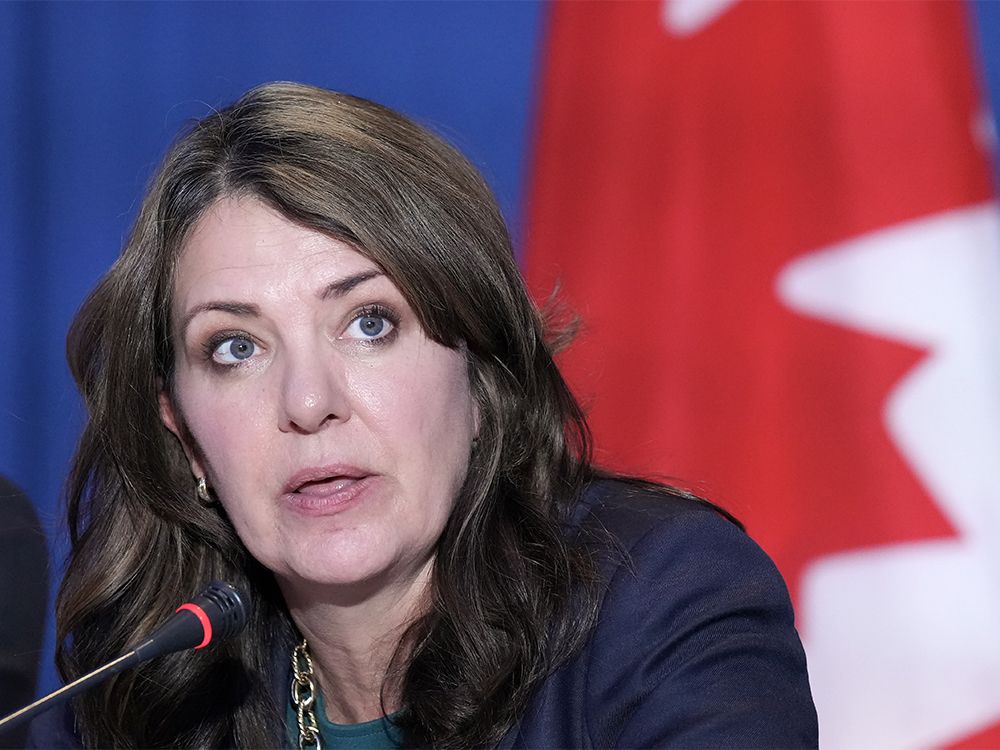We have behaved in the 2020s exactly like a welfare state that was determined to test Milton Friedman’s principle, and we found it to be true
Published Jan 05, 2025 • Last updated 1 hour ago • 2 minute read

In Canada, 2024 may eventually be remembered as the year of Milton Friedman’s revenge. Late in his life, the American sage of free markets said on a couple of different occasions that immigration was good, and the mass immigration to the New World of the early 20th century was especially good, but that radically open borders are incompatible with large contemporary welfare states. This may strike many as an uncontroversial claim, but Friedman has never been totally forgiven by radical open-borders libertarians who otherwise venerate him.
Advertisement 2
THIS CONTENT IS RESERVED FOR SUBSCRIBERS
Enjoy the latest local, national and international news.
- Exclusive articles by Conrad Black, Barbara Kay and others. Plus, special edition NP Platformed and First Reading newsletters and virtual events.
- Unlimited online access to National Post and 15 news sites with one account.
- National Post ePaper, an electronic replica of the print edition to view on any device, share and comment on.
- Daily puzzles including the New York Times Crossword.
- Support local journalism.
SUBSCRIBE FOR MORE ARTICLES
Enjoy the latest local, national and international news.
- Exclusive articles by Conrad Black, Barbara Kay and others. Plus, special edition NP Platformed and First Reading newsletters and virtual events.
- Unlimited online access to National Post and 15 news sites with one account.
- National Post ePaper, an electronic replica of the print edition to view on any device, share and comment on.
- Daily puzzles including the New York Times Crossword.
- Support local journalism.
REGISTER / SIGN IN TO UNLOCK MORE ARTICLES
Create an account or sign in to continue with your reading experience.
- Access articles from across Canada with one account.
- Share your thoughts and join the conversation in the comments.
- Enjoy additional articles per month.
- Get email updates from your favourite authors.
THIS ARTICLE IS FREE TO READ REGISTER TO UNLOCK.
Create an account or sign in to continue with your reading experience.
- Access articles from across Canada with one account
- Share your thoughts and join the conversation in the comments
- Enjoy additional articles per month
- Get email updates from your favourite authors
Article content
As a result, it is rather hard to find any discussion of the Friedman dilemma that isn’t sharply critical. Bryan Caplan, a great admirer of Friedman and an important libertarian economist, for example, attributes Friedman’s warnings to senile “paranoia” and bad math.
We Canadians have all lived through a year in which the carrying capacity of a model welfare state was tested to its political limit, and beyond, by poorly controlled immigration. For a half-century, very high immigration levels, levels without much parallel anywhere else in the world, were a distinguishing core part of the Canadian political philosophy. We thought of ourselves as filling in a vast empty map and pursuing diversity as an end in itself, while being administratively careful to choose the most promising immigrants.
This has all transformed very suddenly, and is a major factor in the crisis now devouring the Liberal Party of Canada. In 2024, the public began to hear warnings from labour and bank economists that governments had lost control of fundamental immigration parameters, and the state lost the ability even to count resident non-citizens accurately in real time. Under pressure from the COVID pandemic, Liberals had opened the door to an unprecedented (even for Canada) flood of low-wage guest workers, asylum seekers and international students who were hypothetically supposed to be self-supporting.
Advertisement 3
Article content
These choices have had obvious first-order effects on semi-official safety-valve parts of our welfare state, like emergency shelters and food banks. They have put crazy pressure on housing construction, which remains constipated by heavy regulation, and have increased demand for health care, which is shielded from ever-suspicious “market forces” and thus cannot react to population growth in the way that shoe stores do.
They have also coincided with a period of stagnant labour productivity, disconcerting urban decay and grotesque reversals in per capita GDP — something that open-border advocates wouldn’t predict, didn’t predict and can’t really explain. We have behaved in the 2020s exactly like a welfare state that was determined to test Friedman’s principle, and we found it to be true.
Of course, if we could put a Friedman clone in charge of our country, or for that matter Bryan Caplan, we would be sure to end up with a more nimble and adaptable economy with less of a necessity for limiting newcomers. Canada is a country that tries to combine plenty of economic nationalism with sky-high immigration. This was always a curious and expensive mixture of ideals. After a decade of a Liberal government proclaiming our “post-national” character, and being openly hostile to cultural nationalism and historical traditions, it is beginning to seem like plain madness.
Recommended from Editorial
-

Jesse Kline: Liberal immigration plan exposes the folly of big government
-

Colby Cosh: The bankers' revolt against Canada's tidal wave of immigration
Article content

 5 days ago
1
5 days ago
1














.png)



















 Bengali (BD) ·
Bengali (BD) ·  English (US) ·
English (US) ·